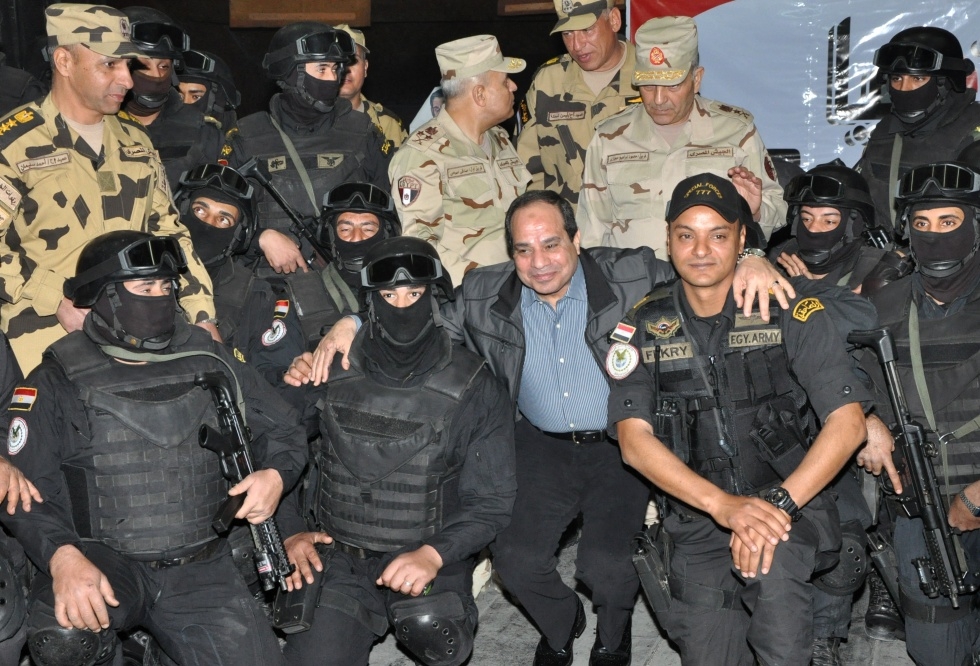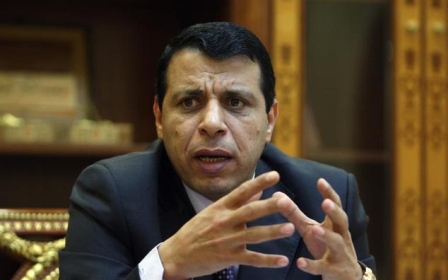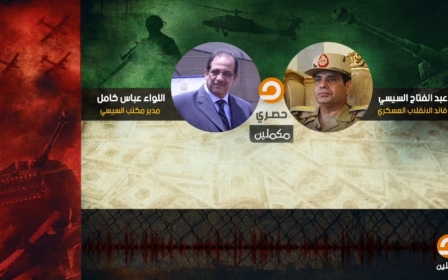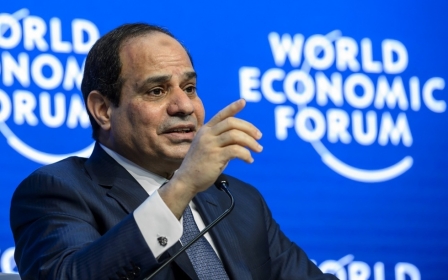Will foreign investors in Egypt have blood on their hands?

The regime of Abdel Fattah al-Sisi has staked its future on an investment conference, for which he is desperate to attract foreign direct investment (FDI). Egypt does not need FDI. Rather, Egypt needs an integrated, comprehensive economic and development strategy of which FDI is only one aspect.
Immediately after the January 25 revolution in 2011, the Freedom and Justice Party, of which I am a member of the Executive Board, proposed just that kind of comprehensive economic and development strategy that could have lifted Egypt out of its chronic condition as an underperforming economy. We understood that a number of essential reforms are necessary, including transparent and corruption-free administration; efficient civil service and reduced bureaucracy and red tape; support for creating a vibrant small and medium-sized enterprise sector; a leaner, more efficient and more just subsidy regime, and FDI.
The Sisi regime is corrupt. Recent leaks have shown the leadership of the armed forces - ostensibly in charge of the country’s economic recovery - routinely syphoning money from the public coffers. Furthermore, the repressive nature of the regime (Egypt now ranks 90/99 countries globally according to the World Justice Project in terms of fundamental rights) is very expensive to maintain. The regime buys popular influence through the media and buys the loyalty of army and police officers through various perks. The result is that spending on security outstrips spending on education and health combined.
But that is not all. The Sisi regime relies heavily on the very same Mubarak-era bureaucrats who created the economic and social policies which brought Egypt to the brink of revolution in the first place. Fiscal policy has been enacted without any regard to the effect on the most vulnerable segments of society and while the army and oligarchs that support it are busily plundering whatever remaining resources, average Egyptians have been left to fend for themselves amidst rising prices, inflation and devalued savings.
So, while Egypt needs foreign direct investment as part of a broader economic plan to bring about recovery and a more stable and just social order, FDI alone under this regime will not succeed. Instead, FDI entering the country under this regime will go towards bolstering a military that is set on enacting the most repressive regime in the modern history of Egypt.
The catalogue of abuses perpetrated by this regime is enormous. Not content with extrajudicial killings, torture, rape and illegal and inhumane detentions of its subjects, the regime has recently expanded its criminal enterprise to neighbouring Libya. Two major rights organisations (Amnesty International and Human Rights Watch) have described the Egyptian military’s recent assault on Libya in which children and other civilians were killed as a war crime.
Investors be warned
No agreement or arrangement entered into by this regime will be automatically honoured by any future truly national government. Each case will be assessed on its own merits to ensure that it truly serves the interests and needs of Egypt and all Egyptians. All such arrangements or agreements will be thoroughly examined to ensure they were devoid from graft and kickbacks. Furthermore, any participant in this coming investment conference, should ask himself or herself the following simple question: "Can I bear responsibility of the killings and other human rights violations this oppressive regime is committing through the money I will be helping that regime with through my investments; allowing it to stabilise and commit further crimes?"
Opposition to this corrupt, criminal, murderous regime has mounted from the very beginning of its tenure. A broad segment of Egyptians want to see a free, democratic and just Egypt that is a respected and responsible member of the international community. Egyptians have drawn a line in the sand: we will not allow the army to once again drag Egypt into the abyss as it has consistently done since 1952 and all those who wish to continue to engage the real Egypt should understand that it is not simply business as usual.
- Amr Darrag is former Egyptian Minister of Planning and International Cooperation Head of Political and International Relations Bureau, Egyptian Muslim Brotherhood.
The views expressed in this article belong to the author and do not necessarily reflect the editorial policy of Middle East Eye.
Photo: Abdel Fattah al-Sisi posing on 3 February, 2015 for a photo with members of the Armed Forces Unit (AFP)
New MEE newsletter: Jerusalem Dispatch
Sign up to get the latest insights and analysis on Israel-Palestine, alongside Turkey Unpacked and other MEE newsletters
Middle East Eye delivers independent and unrivalled coverage and analysis of the Middle East, North Africa and beyond. To learn more about republishing this content and the associated fees, please fill out this form. More about MEE can be found here.





